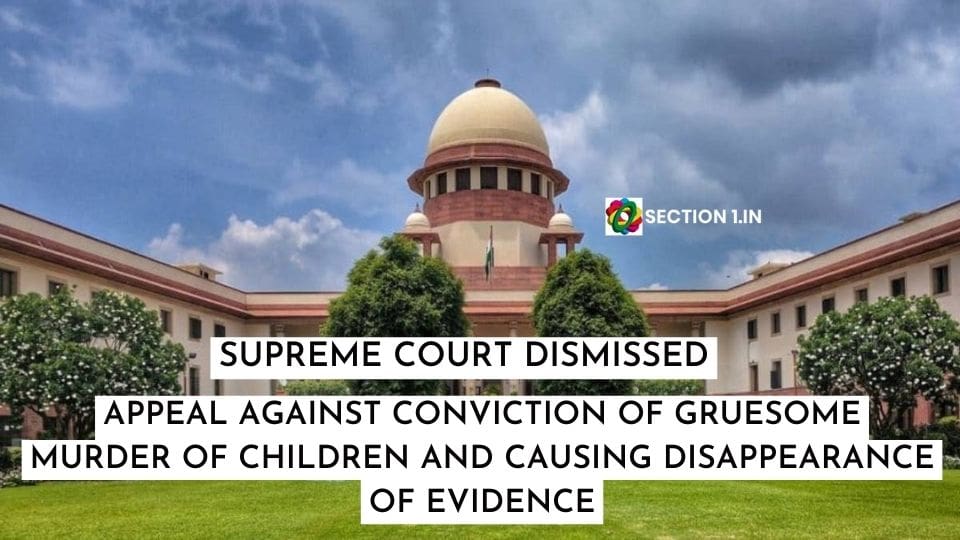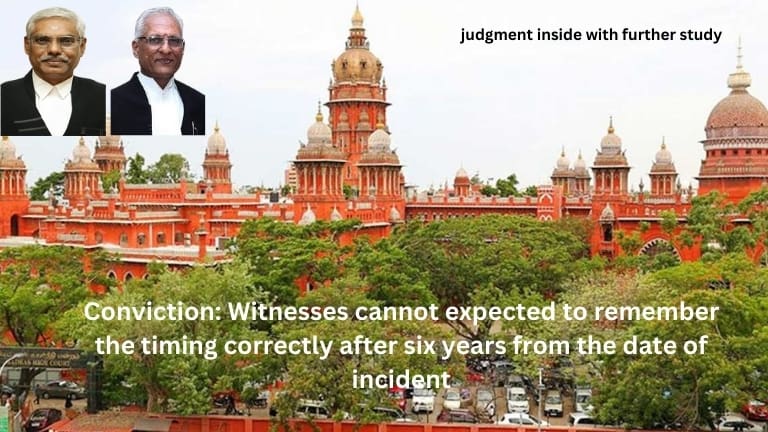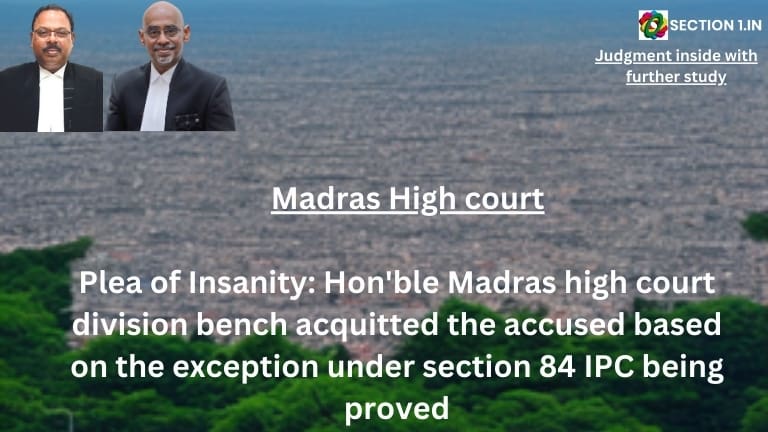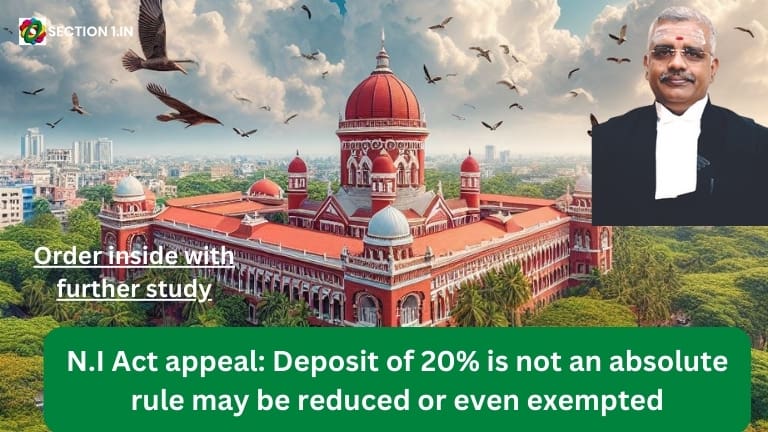APPEAL GROUNDS
2. This appeal is directed against the judgment and order dated 29.02.2016, as passed by the High Court of Delhi at New Delhi in Criminal Appeal No. 879 of 2013, whereby the High Court has dismissed the appeal against the judgment of conviction and order of sentence, respectively dated 03.09.2011 and 08.09.2011, as passed by the Court of Additional Sessions Judge-IV, Rohini (Outer), Delhi in Sessions Case No. 238 of 2009, whereby the appellant was held guilty of offences punishable under Sections 302 and 201 of the Indian Penal Code, 1860 1 and was awarded varying punishments, including that of imprisonment for life for the offence under Section 302 IPC.
facts of the case
3.1. The allegations against the appellant had been that on 03.05.2009, he took his two sons, aged about 9 years and 6 years, to Haiderpur Canal, strangulated them, and threw the dead bodies into the canal; and thereafter, attempted to project as if it were a case of accidental drowning. It was also alleged that the appellant was a drunkard, who doubted the chastity of his wife and suspected that the children were not his sons.
3.2. In trial, two of the prosecution witnesses, PW-5 Bishan Singh (brother of the appellant) and PW-9 Sunita Yadav (wife of the appellant) did not support the prosecution case as regards conduct and behaviour of the appellant. However, the Trial Court held that all the essential and material facts were duly established in the evidence adduced by the prosecution, including that the deceased children were last seen in the company of the appellant, who took them to canal and later on informed the staff at the Haiderpur Water Plant and at the Petrol Pump as also to the police that they accidentally fell into the canal; that the cause of death of both the children had been asphyxia as a result of manual strangulation; and that the appellant was a drunkard who doubted the chastity of his wife and thought that he was not the father of the deceased children. The Trial Court, therefore, convicted the appellant of the offences under Sections 302 and 201 IPC and awarded the punishments accordingly.
THE SCOPE AND WIDTH OF THIS APPEAL
12. As noticed, the Trial Court and the High Court have concurrently recorded the findings in this case that the prosecution has been able to establish the chain of circumstances leading to the only conclusion that the appellant is guilty of the offences of murder of his sons and causing disappearance of evidence. Though the parameters of examining the matters in an appeal by special leave under Article 136 of the Constitution of India have been laid down repeatedly by this Court in several of the decisions but, having regard to the submissions made in this case, we may usefully reiterate the observations in the case of Pappu v. The State of Uttar Pradesh: 2022 SCC OnLine SC 176 wherein, after referring to Articles 134 and 136 of the Constitution of India and Section 2 of the Supreme Court (Enlargement of Criminal Appellate Jurisdiction) Act, 1970 as also with a detailed reference to the relevant decisions, this Court has summed up the subtle distinction in the scope of a regular appeal and an appeal by special leave in the following words: –
“20.…. In such an appeal by special leave, where the Trial Court and the High Court have concurrently returned the findings of fact after appreciation of evidence, each and every finding of fact cannot be contested nor such an appeal could be dealt with as if another forum for reappreciation of evidence. Of course, if the assessment by the Trial Court and the High Court could be said to be vitiated by any error of law or procedure or misreading of evidence or in disregard to the norms of judicial process leading to serious prejudice or injustice, this Court may, and in appropriate cases would, interfere in order to prevent grave or serious miscarriage of justice but, such a course is adopted only in rare and exceptional cases of manifest illegality. Tersely put, it is not a matter of regular appeal. This Court would not interfere with the concurrent findings of fact based on pure appreciation of evidence nor it is the scope of these appeals that this Court would enter into reappreciation of evidence so as to take a view different than that taken by the Trial Court and approved by the High Court.”
12.1. Keeping the principles aforesaid in view, we may examine if the concurrent findings call for any interference in this case while reiterating that wholesome reappreciation of evidence is not within the scope of this appeal, even though we have scanned through the entire evidence in order to appropriately deal with the contentions urged before us.
The principles relating to circumstantial evidence; burden of explanation; hostile witness; and motive
13.1. The principles explained and enunciated in the case of Sharad Birdhichand Sarda v. State of Maharashtra: (1984) 4 SCC 116 remain a guiding light for the Courts in regard to the proof of a case based on circumstantial evidence. Therein, this Court referred to the celebrated decision in Hanumant v. State of Madhya Pradesh: AIR 1952 SC 343 and deduced five golden principles of proving a case based on circumstantial evidence ….
…
13.1.1. It is also pertinent to notice that in the said case of Sharad Birdhichand Sarda, this Court also enunciated the principles for using the false explanation or false defence as an additional link to complete the chain of circumstances …
…
14. Moving on to the other applicable provisions and principles, we may usefully take note of Section 106 of the Evidence Act, casting burden of proving a fact especially within knowledge of any person, and a few relevant decisions in regard to its operation qua an accused.
14.1. Section 106 of the Evidence Act reads as under: –
“106. Burden of proving fact especially within knowledge. — When any fact is especially within the knowledge of any person, the burden of proving that fact is upon him.”
14.2. In the case of Trimukh Maroti Kirkan v. State of Maharashtra: (2006) 10 SCC 681, the accused was charged of the murder of his wife; there had been allegations of ill-treatment of the deceased-wife by the accused-husband; and though the victim had been killed by strangulation, the information given to her parents as also to all in the village was that she had died on account of snakebite. After taking note of the facts of the case, this Court exposited on the principles governing the assessment of circumstantial evidence, the operation of Section 106 of the Evidence Act, 43 and the effect of want of necessary explanation or giving of false explanation by the accused …
14.3. The case of Sudru v. State of Chhattisgarh: (2019) 8 SCC 333 had been the one where the appellant was charged of the murder of his son in his house; and the principal prosecution witnesses, including wife of the appellant, turned hostile to the prosecution but, the facts did come out of their testimony that the deceased was left alone in the company of the appellant and the next day, the deceased was found dead. Taking note of the salient features of the case and operation of the requirements of Section 106 of the Evidence Act, this Court observed, as regards consideration of the relevant part of evidence of a hostile witness and the effect of failure on the part of the accused to discharge his burden, as follows: –
…
14.4. Apart from the above, we may also usefully take note of the recent decision of this Court in the case of Sabitri Samantaray (supra). Therein, with reference to Section 106 of the Evidence Act, a 3-Judge Bench of this 45 Court noted that if the accused had a different intention, the facts are especially within his knowledge which he must prove; and if, in a case based on circumstantial evidence, the accused evades response to an incriminating question or offers a response which is not true, such a response, in itself, would become an additional link in the chain of events. The relevant part of the enunciation by this Court reads as under: –
…
15. As regards the relevancy of motive in a case based on circumstantial evidence, the weight of authorities is on principles that if motive is proved, that would supply another link in the chain of circumstantial evidence but, absence of motive cannot be a ground to reject the prosecution case, though such an absence of motive is a factor that weighs in favour of the accused. In Anwar Ali and Anr. v. State of Himachal Pradesh: (2020) 10 SCC 166, this Court has referred to and relied upon the principles enunciated in previous decisions and has laid down as under: –
… 24. …
APPLICATION OF THE RELEVANT PRINCIPLES TO THE FACTS OF THIS CASE
16.4. When the facts established by the evidence on record and the surrounding factors are put together, the chain of circumstances had unfailingly been that the deceased children were lastly seen alive in the company of the appellant; they died because of manual strangulation and obviously, their death was homicidal in nature; their dead bodies were recovered from the canal; and the appellant attempted to project that they had accidentally fallen into the canal. In the given set of circumstances, when the deceased children were in the company of the appellant, who was none else but their father and when their death was caused by manual strangulation, the burden, perforce, was heavy upon the appellant to clarify the facts leading to the demise of his sons, which would be presumed to be specially within his knowledge. Thus, the principles of Section 106 of the Evidence Act operate heavily against the appellant.
16.4.1. It is, of course, the duty of prosecution to lead the primary evidence of proving its case beyond reasonable doubt but, when necessary evidence had indeed been led, the corresponding burden was heavy on the appellant in terms of Section 106 of the Evidence Act to explain as to what had 50 happened at the time of incident and as to how the death of the deceased occurred. There had not been any explanation on the part of the appellant and, as noticed, immediately after the incident, he attempted to create a false narrative of accidental drowning of the children. There had not been any specific response from the appellant in his statement under Section 313 CrPC either.
17. Taking all the facts and factors together, the chain of circumstances leading only to the hypothesis of the guilt of the appellant has been duly visualised and analysed by the Trial Court as also by the High Court. That being the position, learned counsel for the appellant has endeavoured to submit that an important link in the chain of circumstances, i.e., motive, has not been established and in that regard, reliance has particularly been placed on the statement of the wife of the appellant PW-9 Sunita Yadav, who did not support the prosecution allegations about strained relationship of the appellant and herself.
17.1. As noticed, motive, when proved, supplies additional link in the chain of circumstantial evidence but, absence thereof cannot, by itself, be a ground to reject the prosecution case; although absence of motive in a case based on circumstantial evidence is a factor that weighs in favour of the accused.
…
17.3. We are clearly of the view that when the evidence on record unambiguously proves the guilt of the accused-appellant, the factor relating to motive cannot displace or weaken the conclusions naturally flowing from the evidence. Moreover, the present case cannot be said to be of want of motive altogether. Differently put, in our view, when all the facts and circumstances are taken together, the present one is not a case where there had been any missing link in the chain of circumstances, leading only to the conclusion of the guilt of the appellant.
18. As noticed, the Trial Court and the High Court have concurrently recorded the findings that the prosecution has been able to establish the chain of circumstances leading to the conclusion that the appellant is guilty of the offence of murder of the victim children, his sons, as also the offence of causing disappearance of evidence. There appears no infirmity in the findings so recorded.
PLEA OF MENTAL INCAPACITY OF THE APPELLANT
19. The chain of circumstances against the appellant being complete and strong, learned counsel for the appellant has endeavoured to make out a case of alleged unsoundness of mind of the accused-appellant and has developed a few contentions in that regard that the intent of committing crime cannot be imputed on the appellant looking to his mental instability; and that the entire trial stood vitiated for want of compliance of Section 329 CrPC.
19.1. Sections 84 IPC, 86 IPC, 329 CrPC and 105 Evidence Act with its illustration (a), carrying relevance in relation to the submissions so made, could be usefully reproduced as under: –
…
20. As noticed, in regard to the mental status of the appellant, two-fold submissions have been made in the present appeal. One concerning his mental incapacity at the time of commission of crime and second, as regards the legality and validity of trial where the investigating agency and the prosecution did not project the factors relating to mental incapacity of the appellant and the Trial Court did not adopt the procedure envisaged by Section 329 CrPC. These submissions are founded on the facts that the appellant was addicted to alcohol and was admitted to the rehabilitation centre for de-addiction. It has also been underscored that the family members of the appellant got him discharged from the rehabilitation centre against advice and without letting him complete the course for rehabilitation to its expected duration. The submissions carry several shortcomings and could only be rejected in the facts of the present case.
21. It remains trite that the burden of proving the existence of circumstances so as to bring the case within the purview of Section 84 IPC lies on the accused in terms of Section 105 of the Evidence Act; and where the accused is charged of murder, the burden to prove that as a result of unsoundness of mind, the accused was incapable of knowing the consequences of his acts is on the defence, as duly exemplified by illustration (a) to the said Section 105 of the Evidence Act. As noticed, the mandate of law is that the Court shall presume absence of the circumstances so as to take the case within any of the General Exceptions in the Indian Penal Code, 1860. The principles of burden of proof in the context of plea of unsoundness of mind had been stated by this Court in the case of Dahyabhai Chhaganbhai Thakkar (supra) in the following terms: –
…
22. As noticed, the prosecution has proved beyond reasonable doubt that the accused has committed the offences of murdering the children and causing disappearance of evidence. The other surrounding factors also show that prosecution has proved the requisite mens rea with reference to the manner of commission of crimes and projecting false narratives by the appellant. In the given set of facts and circumstances, on the submission as made as regards unsoundness of mind, the question in the present case is as to whether the accused-appellant has been able to establish that he was insane at the time of committing the offence or anything has been projected on record for which even a reasonable doubt could be entertained as regards mens rea? The answer to this question, in our view, could only be in the negative.
PLEA OF INSANITY NOT PROVED
23. The evidence on record, taken as a whole, at the most shows that the appellant was addicted to alcohol and was admitted to the rehabilitation centre for de-addiction. However, there is absolutely nothing on record to show that the appellant was medically treated as a person of unsound mind or was legally required to be taken as a person of unsound mind. Contrary to the suggestions made on behalf of the appellant, the testimony of PW-3 Jagbir, manager of rehabilitation centre, had been clear and specific that during his stay in the centre, no mental illness was observed in the appellant nor was he treated for any mental illness. PW-3 stated in categorical terms that the behaviour of the appellant ‘was normal during his said stay and he was never given any medicine for mental illness because neither any mental illness was observed in him nor his family members gave us any previous history of his suffering from any mental illness.’ In his cross-examination, this witness further removed any doubt in regard to the mental status of the appellant while maintaining that the appellant ‘was mentally fit and sound during his stay at our centre and he was admitted only for de-addiction of his habit of consuming liquor.’ Hence, the appellant’s had only been a case of addiction to alcohol. The manager, PW-3, of course, suggested the opinion that the appellant ought to have undergone the course for a period of 7-9 months and that the family members got him discharged against advice but, this statement cannot be read to mean that the appellant was to be treated as a person of unsound mind. In fact, the appellant remained admitted to the rehabilitation centre from 20.11.2008 to 29.04.2009, i.e., for a period of over 5 months and, as noticed above, he was never found suffering from any mental illness so as to be regarded as a person of unsound mind.
24. It is also noticed that the plea of unsoundness of mind and, therefore, the benefit of Section 84 IPC, was never taken in the trial nor any evidence was led in this regard. Significantly, not even a remote suggestion was made to any witness examined for the prosecution about the alleged mental incapacity of the appellant. In his examination under Section 313 CrPC, the response of the appellant to the questions relating to his admission to the rehabilitation centre and the related facts had been that those aspects were ‘a matter of record’. In the given set of facts and circumstances, we are unable to find anything on record for which the benefit of Section 84 IPC could even be remotely extended to the appellant.
…
25.1.1. The aforesaid expositions on the scope of the provisions relating to accused person of unsound mind are not of much debate. However, nothing of the aforesaid principles could apply to the present case, for there had been no material on record and no other reason appeared during trial for which, the Trial Court would have been obliged to take recourse of the procedure contemplated by Section 329 CrPC.
25.2. Similarly, the suggestions about defect in trial or failure on the part of the investigating agency to get the appellant examined through psychiatrist with reference to the decision of the Bombay HC in case of Ajay Ram Pandit (supra) remain too far-stretched. In the said case, it was noticed that the investigating officer became aware of the fact after apprehending the accused that he was mentally unstable and in fact, the people in his locality used to consider him as a mad man. The fact situation of the present case is entirely different.
…
27. Thus, we are clearly of the view that the appellant was neither suffering from any medically determined mental illness nor could be said to be a person under a legal disability of unsound mind. Hence, neither Section 84 IPC applies to the present case nor Section 329 CrPC would come to the rescue of the appellant.
Conclusion
31. For what has been discussed hereinabove, we are satisfied that there is no infirmity in the findings concurrently recorded by the Trial Court and the High Court that the prosecution case is amply established by cogent and convincing chain of circumstances, pointing only to the guilt of the appellant, who caused the death of victim children, his sons, by strangulation and also caused the evidence of offence to disappear by throwing the dead bodies into the canal. The submissions evolved for the purpose of the present appeal that the appellant be extended the benefit of alleged want of mental capacity also remain baseless and could only be rejected. Therefore, no case for interference is made out.
PARTY: PREM SINGH vs. STATE OF NCT OF DELHI – CRIMINAL APPEAL NO. 01 OF 2023 – JANUARY 02, 2023.
https://main.sci.gov.in/supremecourt/2018/40690/40690_2018_7_1501_40729_Judgement_02-Jan-2023.pdf







1 Comment
[…] of the eight accused, the Trial Court convicted five. One died during the pendency of the trial. An appeal against conviction was preferred before the High Court. By the impugned judgment, the High Court confirmed the […]